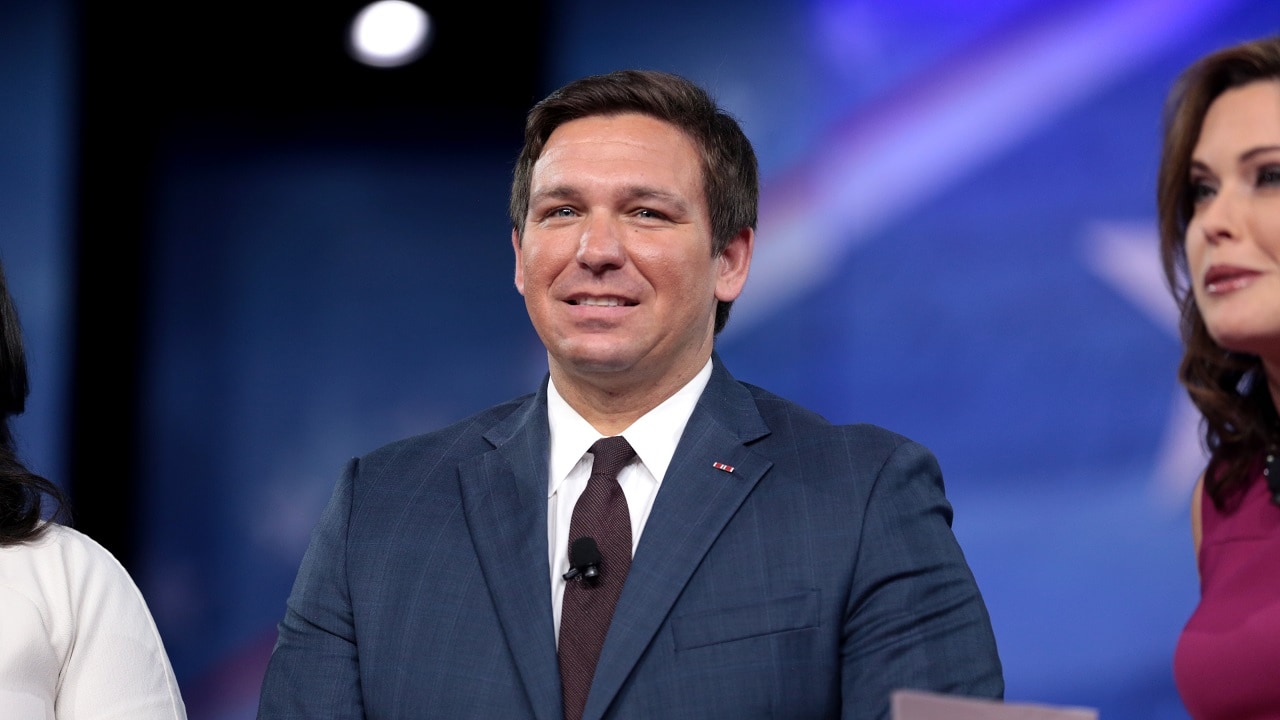Florida Gov. Ron DeSantis’s campaign is facing political criticism for snubbing President Joe Biden following Hurricane Idalia.
“Your job as governor is to be the tour guide for the president, to make sure the president sees your people, sees the damage, sees the suffering, what’s going on and what needs to be done to rebuild it,” former New Jersey Gov. Chris Christie, a rival for the Republican presidential nomination, told Fox News Radio’s Brian Kilmeade. “You’re doing your job. And unfortunately, he put politics ahead of his job.”
Christie drew criticism before the 2012 election for touring areas that were damaged by Hurricane Sandy with then-President Barack Obama. Some pundits suggested that his touring hurricane-ravaged areas with Chris Christie put him over the top in his 2012 race with Mitt Romney.
DeSantis’s office denies that snub was political.
“In these rural communities, and so soon after impact, the security preparations alone that would go into setting up such a meeting would shut down ongoing recovery efforts,” Jeremy Redfern, the governor’s press secretary, said.
DeSantis Campaign Wanted Him to Look In Charge
The DeSantis campaign’s Communications Director Andrew Romeo stated in an internal campaign memo that he wanted the candidate to seem like he was a strong leader who was putting the interests of Floridians first.
“The DeSantis Administration helped guide the state through another historic storm,” the memo said. “As part of that effort, Ron DeSantis appropriately left the presidential campaign trail to focus on the needs of Floridians.”
Florida’s junior Sen. Rick Scott, DeSantis’s predecessor as governor, took the honors of touring Biden around areas that had been damaged by the hurricane.
“Christie had taken heat about embracing Obama, and that was not a good look for Republicans who are going to be voting in the primary,” Susan MacManus, distinguished professor emeritus of political science at the University of Florida, told The Guardian.
Campaign Didn’t Want DeSantis to Seem Chummy With Biden
Some observers say that DeSantis wanted to avoid seeming too chummy with Joe Biden amid the campaign season.
“Any time a hurricane heads for Florida it gains massive national attention. There’s hardly a voter that hasn’t been to Florida, wants to come to Florida, or has relatives who live here or lived here,” she said.
“The net gain for him was to be off the trail. It gave him time to regroup, and it gave him time to reach audiences or opportunities to reach audiences that he would not have reached. A lot of people don’t know much about him, in spite of the fact that people who follow politics every single day are well aware of him.”
Is Ron DeSantis’s Campaign Running Out of Gas?
All of this comes as DeSantis’s campaign seems to be running out of gas. Last winter he was seen as the person who could beat Donald Trump; however, the avalanche of indictments and lawsuits against Trump has solidified the former president’s lead. Not only that, but Trump’s lead has also grown.
DeSantis’s trouncing of his predecessor Charlie Crist last fall with 59.4% of the vote had pundits thinking he might have what it takes to beat Trump. Instead, DeSantis’s campaign has been plagued by “rookie” mistakes and false starts such as his May debut on X with Elon Musk which turned out to be disastrous.
He is finding out fast that running for governor of a state and running for president are two different things. Focusing on Wokeness has not proven to be a winning message because it goes over the heads of most people unlike harping on things like inflation.
His support has fallen from 31% in January to 14.9% today according to the Real Clear Politics Average.
John Rossomando is a defense and counterterrorism analyst and served as Senior Analyst for Counterterrorism at The Investigative Project on Terrorism for eight years. His work has been featured in numerous publications such as The American Thinker, The National Interest, National Review Online, Daily Wire, Red Alert Politics, CNSNews.com, The Daily Caller, Human Events, Newsmax, The American Spectator, TownHall.com, and Crisis Magazine. He also served as senior managing editor of The Bulletin, a 100,000-circulation daily newspaper in Philadelphia, and received the Pennsylvania Associated Press Managing Editors first-place award for his reporting.

